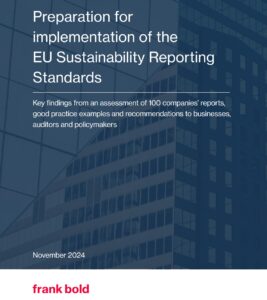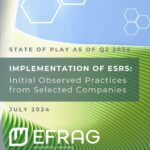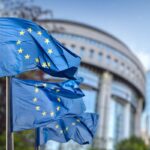
Frank Bold published a study on the sustainability disclosures of 100 influential companies. The study provides from high-impact sectors an early reflection on the general readiness for businesses in the EU to meet the expectations of the upcoming EU sustainability rules and standards. The report contributes to identifying the main challenges, as well as to highlight emerging good practices.
Following the EU Corporate Sustainability Reporting Directive (CSRD), large companies will start to report in accordance with the first set of sector-agnostic European Sustainability Reporting Standards (ESRS) in 2025.
This legal framework was adopted to enhance and modernise companies reporting on sustainability matters, with the objective of addressing a market failure in providing relevant, comparable and decision-useful sustainability information.
We assessed the presence and quality of key disclosures according to the requirements and expectations of the EU Sustainability Reporting Standards on:
- Double materiality assessment (process and outcomes)
- Climate-related disclosures and Transition Plans (connection to commitments,completeness and quality of disclosures)
- Sustainability due diligence (connection with double materiality assessment, governance and stakeholder engagement)
- Biodiversity (consideration in double materiality assessment, specific impact and metrics)
Frank Bold examined sustainability statements of 100 influential EU companies in top 5 high-impacts sectors prioritised for the development of EU sector standards: Textiles, Finance, Road Transportation, Energy, Food & Beverage.
Download the study “Preparation for implementation of the EU Sustainability Reporting Standards”



